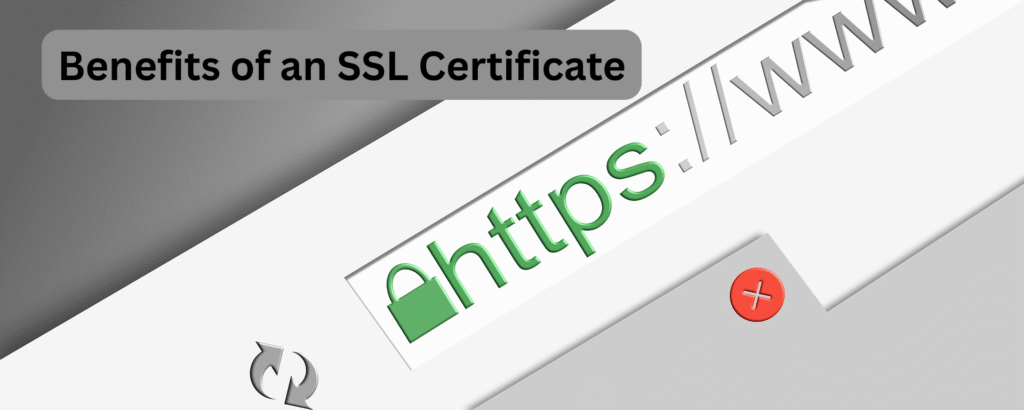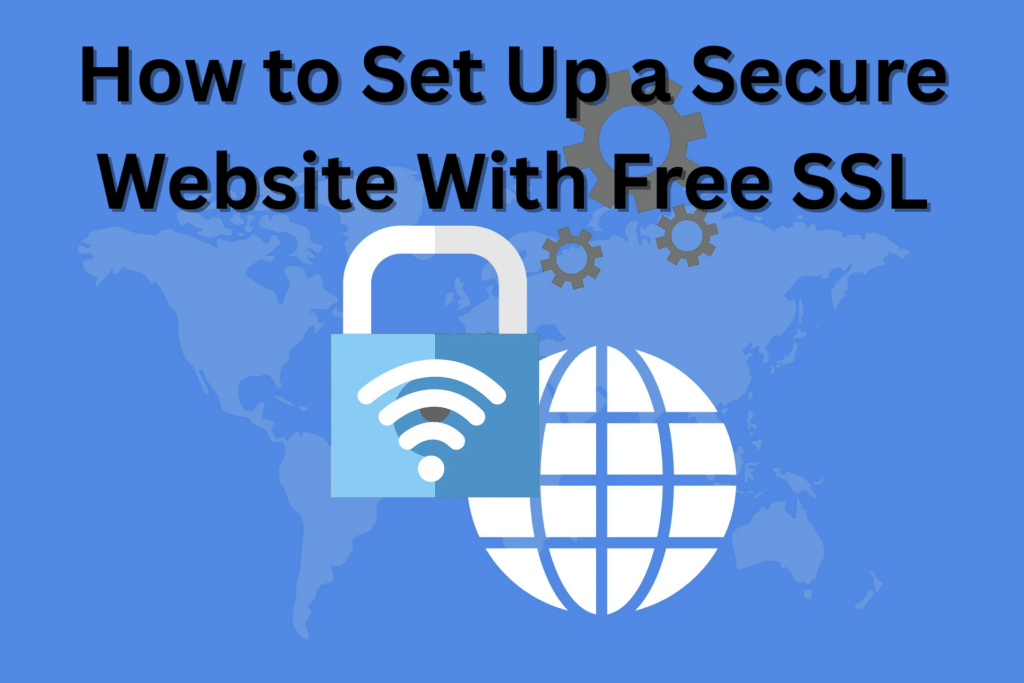We’re glad you’re here. This is the go-to blog where we post daily updates on the best web hosting deals, expert tips, and in-depth reviews to help you make smarter decisions about where and how to host your website.
If you’re serious about your website’s performance and security, be sure to check out some of our latest must-read posts: “Best Secure Web Hosting Providers for Maximum Protection,” “How to Speed Up a Website with the Right Web Hosting,” and “How to Prevent Website Downtime with Hosting.”
Also, don’t miss our top-performing article that’s helped thousands of readers find reliable hosting without breaking the bank. Top 10 Fastest Web Hosting Providers, How to Choose the Best Web Hosting for Your Website, The Best Managed WordPress Hosting Providers, Best SSD Web Hosting Providers, Best Budget-Friendly Hosting Providers, and How to Transfer Your Website to a New Hosting Provider
Now, in today’s post, we’re diving deep into a topic that every website owner—beginner or pro—needs to understand: . This article is titled “Secure Your Website with Free SSL Hosting: The Best Hosting with Free SSL in 2025.”
If you’ve ever asked, “What is an SSL certificate and do I need one?”—you’re in the right place. In a digital world filled with cyber threats and data breaches, securing your site isn’t a luxury—it’s a necessity. The good news? Many hosting providers now include SSL certificates at no extra cost.
Whether you’re starting a personal blog, launching a portfolio, or setting up your first online store, this guide will walk you through why SSL matters, which hosting providers offer it for free in 2025, and how you can set it up quickly and easily.
By the end of this post, you’ll not only know how to Secure Your Website with Free SSL Hosting, why it matters, and how to get started. You will also know how to choose the right hosting provider with a free SSL certificate, but you’ll also have a clear understanding of how SSL works and why it’s essential to your website’s credibility and security.
Let’s get started.
What is an SSL Certificate, and why does it matter

An SSL (Secure Sockets Layer) certificate is a digital security protocol that encrypts data between your website and your visitors’ browsers. This ensures that any information shared—like passwords, credit card numbers, or contact details—remains private and protected from hackers or eavesdroppers.
When a website has an SSL certificate installed, it displays as HTTPS instead of HTTP in the address bar. You’ll also see a padlock icon, which tells users, “This site is secure.” Without SSL, your site appears as “Not Secure,” especially in browsers like Chrome or Firefox, which can scare visitors away and damage your credibility.
Imagine someone sending you a message in a locked box that only you have the key to open. That’s essentially how SSL works. It uses a pair of cryptographic keys—one public and one private—to encrypt and decrypt the information. This keeps your data safe from interception by cybercriminals and protects both you and your website visitors.
For website owners, this is a must-have layer of protection, especially if your site collects login details, payment information, or contact forms.
Benefits of an SSL Certificate

You might think SSL is only for big companies or online stores, but even a small blog or portfolio site benefits greatly. Here’s why SSL matters:
#1. Data Encryption
SSL ensures all data passed between the user and the server is encrypted, protecting against data theft and unauthorized access.
#2. 2. Authenticity and Trust
SSL confirms your website’s identity, giving your users confidence that they’re not dealing with an impostor site.
#3. SEO Boost from Google
Search engines like Google prioritize secure (HTTPS) websites in rankings. That means having SSL can help your site show up higher in search results.
#4. Increased User Trust
Visitors feel safer browsing your site when they see the padlock icon. That trust can lead to more engagement and conversions.
#5. Protection Against Cyber Attacks
SSL helps defend against cyber threats like phishing and man-in-the-middle attacks, where attackers intercept or manipulate traffic.
#6. Compliance with Legal Standards
If you’re collecting personal data, SSL is often a legal requirement to meet data protection laws like GDPR, CCPA, or PCI-DSS.
#7. Improved Loading Speed
Modern SSL certificates work with HTTP/2, a faster version of the web protocol. This means better site speed and performance.
#8. Secure Online Payments
If you’re running an online store, SSL is non-negotiable. It’s mandatory to protect credit card data during checkout.
#9. Data Integrity
SSL prevents the data from being modified or corrupted during transfer, maintaining the quality and consistency of what users receive.
#10. It’s Now Free and Easy to Install
Thanks to companies like Let’s Encrypt and integrated hosting solutions, getting SSL is no longer expensive or technical. Many providers offer it at no cost, forever.
Top 10 Web Hosting Providers That Offer Free SSL Certificates

Choosing a hosting provider that includes free SSL by default is a smart move, especially if you’re on a budget or just starting. Below are the top hosting services that provide free SSL certificates along with excellent features for beginners:
#1. Hostinger
Perfect for beginners on a budget, Hostinger offers affordable plans, free SSL, a custom website builder, and great customer support. It’s a great entry point for first-time site owners.
#2. SiteGround
Known for its speed and security, SiteGround includes free SSL, daily backups, and managed WordPress hosting—ideal for bloggers and small businesses.
#3. Bluehost
As one of WordPress’s recommended hosts, Bluehost gives you a free SSL certificate, a free domain for the first year, and one-click WordPress installation.
#4. Cloudways
For those looking for scalable cloud hosting, Cloudways provides managed services, free SSL, and real-time performance monitoring—great for growing businesses.
#5. ScalaHosting
Offers a secure and beginner-friendly experience with free SSL, Shield security, and daily backups.
#6. KnownHost
Reliable uptime, free SSL, and fully managed hosting make KnownHost a strong option for business websites.
#7. FastComet
Combining speed and affordability, FastComet gives you free SSL, Cloudflare CDN, and 24/7 customer support.
#8. IONOS by 1&1
With budget-friendly plans, IONOS offers free SSL, unlimited bandwidth, and a personal consultant to guide beginners.
#9. A2 Hosting
A favorite among developers and bloggers alike, A2 Hosting’s turbo servers and free SSL help your website load fast and stay secure.
#10. TMD Hosting
Ideal for small business websites, TMD Hosting offers free SSL, a free domain, and responsive customer support.
How to Set Up a Secure Website With Free SSL

So you’ve heard that SSL is essential, and now you’re wondering, “Okay, but how do I get SSL running on my website?” Don’t worry—you don’t need to be a tech expert to set it up. If you choose the right web hosting provider, the process is quick, painless, and in many cases, fully automatic.
First, start by signing up with a hosting provider that offers a free SSL certificate as part of their package. Hosting companies like Hostinger, SiteGround, Bluehost, and others we’ve listed earlier provide free SSL by default, even with their most basic plans. After creating your hosting account, the next step is to install a content management system (CMS)—WordPress is the most popular and beginner-friendly option, and most hosting providers let you install it with just a single click from your dashboard.
Once WordPress (or your CMS of choice) is installed, your hosting provider will automatically activate your domain’s SSL certificate or give you a simple option to enable it manually. This typically happens through the hosting control panel—like cPanel or hPanel—where you’ll find an option labeled something like “SSL,” “Let’s Encrypt,” or “Enable HTTPS.” All you need to do is click the button, and the SSL will be issued and installed for your site in seconds.
After the SSL certificate is activated, you’ll want to make sure your website address uses HTTPS instead of just HTTP. For WordPress users, you can update this by going into the Settings section of your dashboard, selecting “General,” and replacing the site URL with the HTTPS version. Many hosts also offer an auto-redirect option to force all traffic to the secure version of your site.
And that’s it. Once everything is set, you’ll see the little padlock icon next to your website’s address in the browser bar, confirming that your site is secure and your visitors are protected. No coding, no certificates to install manually—just a few clicks, and your website is SSL-secured.
Even better, having HTTPS helps your site gain trust with visitors and perform better in search engine rankings, making this one of the simplest but most important steps in building a professional and secure online presence.
Conclusion: Secure Your Website with Free SSL Hosting
If you’re launching a website in 2024 or beyond, don’t skip SSL. It’s no longer a luxury—it’s a necessity. A secure website builds trust, improves your SEO, and protects both you and your visitors. And with so many web hosting services offering free SSL, there’s no reason to delay.
Having an SSL certificate is non-negotiable for any modern website. It protects your visitors, improves SEO, builds trust, and ensures your site isn’t flagged as unsafe. The best part? You don’t have to pay extra; many reliable hosting providers include SSL for free.
So, whether you’re starting a personal blog or running an online store, choosing a web host that includes free SSL should be at the top of your checklist.
Whether you’re a student, a freelancer, or a small business owner, make SSL part of your website launch checklist. Your audience will thank you—and so will Google.
Comparison Chart: Top 10 Web Hosting Providers with Free SSL
| Hosting Provider | Free SSL | Key Features | Starting Price |
| Hostinger | ✅ Yes | Fast, secure, budget-friendly | ~$2.99/month |
| SiteGround | ✅ Yes | Daily backups, great support | ~$3.99/month |
| Bluehost | ✅ Yes | Free domain, 1-click WordPress | ~$2.95/month |
| Cloudways | ✅ Yes | Managed cloud hosting, scalable | ~$11/month |
| ScalaHosting | ✅ Yes | Built-in SShield protection | ~$2.95/month |
| KnownHost | ✅ Yes | High uptime, fully managed | ~$3.47/month |
| FastComet | ✅ Yes | Cloudflare CDN, SSD storage | ~$2.49/month |
| IONOS by 1&1 | ✅ Yes | Unlimited traffic, email | ~$1/month |
| A2 Hosting | ✅ Yes | Turbo servers for speed | ~$2.99/month |
| TMDHosting | ✅ Yes | Daily backups, helpful support | ~$2.95/month |
Prices may vary based on plans and promotions. Check out exclusive discount deals here
Check out some of our most popular posts: Top 10 Fastest Web Hosting Providers, How to Choose the Best Web Hosting for Your Website, The Best Managed WordPress Hosting Providers, Best SSD Web Hosting Providers, Best Budget-Friendly Hosting Providers, and How to Transfer Your Website to a New Hosting Provider
Ready to Launch a Secure Website? Choose a hosting provider at webhostinsider.com with free SSL today and take the first step toward building a trusted online presence.

